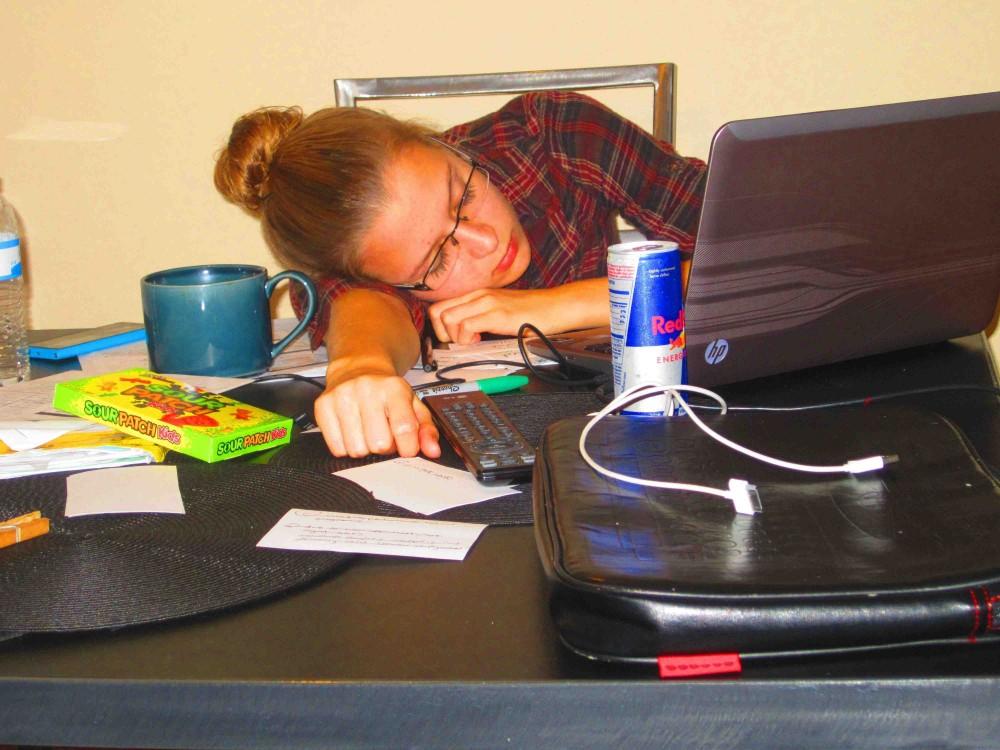
Procrastination is the cause of most people’s anxiety. If you didn’t wait until the last moment to work on that project, gather your notes or study, things might go more smoothly.
The American Psychological Association states that up to 95% of college students procrastinate. I know for a fact that I fall into that category. For example, I told my editor I would have this article in by Friday night. It is 11:00pm and I’ve only begun writing it. I have known about the deadline for a week now, but here I am, one hour before midnight, comprising my thoughts and hoping that few of them will need to be rearranged.
How well you manage your time often determines your level of success. Instead of waiting until the last minute, what’s the harm in starting that final paper a day or two earlier? You would be amazed at the results. You may even discover how to control your schedule better. I think I might just try improving my time management skills, but not until after finals.
I’m sure you’ve heard of ways to deal with the dreaded tests of finals week and the various effects they have, and maybe you’ve heard them so often that the advice has come to seem cliched and hollow. Let me tell you, they have become cliches for a reason.
Exercise is a great way to relieve stress, as I’m sure many of you have heard before. It is knowledge passed down because it works. It just works, despite how monotonous the bit of advice had become. Going for a quick run or making a trip to the gym is a great way to clear your head and get rid of some anxiety. Exercise may improve mental health by helping the brain cope better with stress, according to research into the effect of exercise on neurochemicals involved in the body’s stress response.
An old fashioned, non-technical studying technique most college kids scoff at is the use of flashcards. Making flashcards is probably more useful to you than reading over the notes. After copying down the important information again, you can then quiz yourself and utilize the brain cells that weren’t killed off in the less busy and more fun part of the semester.
Better yet, utilizing your goldmine of flashcards to get in with a new study partner might help you get through the end of the semester. Introducing yourself to classmates (maybe one you’ve been admiring from afar) is a great way to make connections and gain different perspectives. Who knows, you may not only improve your chances of passing the exam, you might enhance your social life.
If all else fails — like the use of caffeine, chocolate or junk food consumption inevitably does — try sleeping. According to an article in the New York Times, seventy percent of college students aren’t satisfied with the number of hours they sleep. Sleep is a secret weapon most college students forget they have. So many hours are spent studying, partying, working and procrastinating that they push themselves beyond their physical limits. Remembering what you’ve learned, especially facts, comes easier when you reach the deep REM and NREM phases of sleep, according to CampusGrotto.
As a college student, we can’t avoid the “F” word but we can upgrade our potential for success by making a few changes, and most of us have at least four years to perfect these skills.
Of course, there is also one other strategy that I didn’t mention earlier. You can always hope for positive karma or good fortune to help you with those final exams.
Yeah, good luck with that one.
Whether you have been able to implement these techniques for this semester’s “F” word or not, I wish you all luck. There’s always next semester to improve your discipline and strengthen your will.







